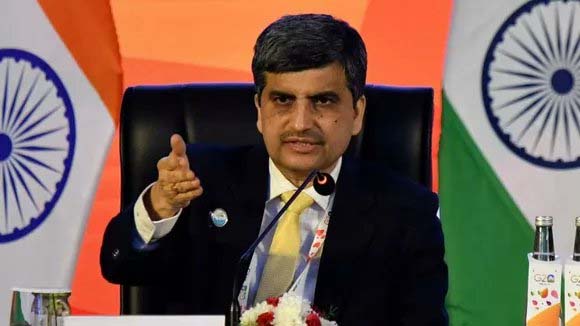In Washington, amid the yearly Spring gatherings of the IMF and the World Bank, there emerged a widespread acknowledgment of India’s role during its G-20 presidency in fostering agreement on a variety of pivotal global matters, according to a senior Indian official. India proudly hosted the G20 Summit in New Delhi from September 9-10.
This summit embraced a 37-page mutual accord, surmounting substantial disparities regarding the Russia-Ukraine conflict and undertaking numerous measures to safeguard global economic steadiness.
Ajay Seth, the Economic Affairs Secretary, conversed with PTI on Friday, amidst the yearly sprint meetings of the International Monetary Fund and the World Bank, revealing, “There exists broad appreciation for India’s stewardship of the G-20, nurturing consensus on numerous issues pertinent to worldwide deployment, conducted during the presidency’s various gatherings as well as the leaders’ summit.”
Due to the ongoing Lok Sabha election, Union Finance Minister Nirmala Sitharaman was unable to attend the annual IMF and World Bank meetings. Consequently, the Indian delegation at this time includes distinguished government officials, such as RBI Governor Shaktikanta Das and Economic Affairs Secretary Ajay Seth.
An acknowledgment has been made that India provides tangible examples of pursuing successful development pathways. Furthermore, there was recognition that the highly effective management of monetary policies and the enactment of responsive and responsible fiscal policies are contributing to the preservation of financial stability in emerging economies, including India, amid prevailing global conditions, as articulated by Seth.
In response to a query, he mentioned, “Several notions were put forth on sustainable finance regarding how financing for climate action should unfold.” On the sidelines of the Spring Meetings, the second gathering of G20 Finance Ministers and Central Bank Governors during the Brazilian Presidency transpired on April 17-18.
The two sessions delved into topics concerning reimagining finance for a just transition and climate objectives, as well as the international financial framework for the 21st century. During the initial session, the RBI Governor imparted India’s experiences, such as the issuance of sovereign green bonds amounting to approximately USD4 billion and the rollout of a framework for regulated entities to accept green deposits.
Additionally, on the sidelines of the Spring Meetings, the Economic Affairs Secretary engaged in bilateral dialogues with counterparts from the US, the UK, Saudi Arabia, Japan, Brazil, and South Africa, as well as the Chair of Financial Stability. Addressing the session on reforming the international financial framework, the RBI Governor underscored the necessity of solid macroeconomic fundamentals for navigating volatility in capital flows.
He highlighted the imperative for central banks to remain steadfast in ensuring price and financial stability. Seth commended the Brazilian Presidency for formulating the 2024 MDB agenda, predicated on the 2-volume report of the G20 Independent Expert Group on Strengthening MDBs, which was crafted under the Indian Presidency of the G20. Furthermore, he underscored the importance for MDBs to collaborate as a cohesive system and explore avenues to amplify the utilization of risk mitigation instruments.




